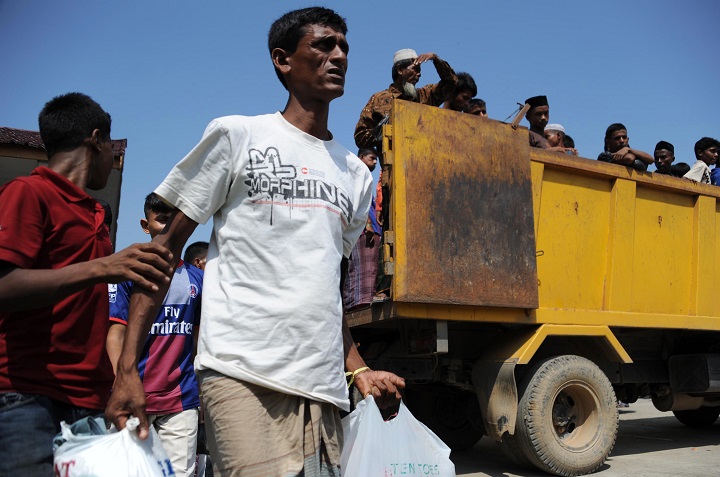LANGKAWI, Malaysia – A boat crammed with more than 500 refugees, likely Rohingya and Bangladeshis, was found Wednesday off the coast of Penang island in northern Malaysia, a person involved in the situation said.

The overcrowded boat is full of desperate people and it’s too dangerous to board it, said the person who spoke on condition of anonymity and is not authorized to speak to the media. Authorities are contemplating what to do next, the person said.
Thousands of Bangladeshis and Rohingya, a long-persecuted minority in Myanmar, have become victims of human traffickers who promise them safe passage to Malaysia. But in recent weeks the smugglers have fled wooden trawlers for fear of being caught in a massive regional crackdown on human trafficking syndicates. In the process, they have abandoned their human cargo and set them adrift in the sea off Malaysia and Indonesia.
Some estimates put the number of refugees stuck in the Malacca Strait and nearby waters at s 6,000, some stranded for more than two months. Activists believe many more boats will try to reach land in the coming days and weeks.
Already, about 1,600 migrants have landed on shore in Langkawi and neighbouring Indonesia, the two Muslim-majority countries that over the years have shown the most sympathy for Rohingya’s plight.
Labeled by the U.N. one of the world’s most persecuted minorities, the Rohingya have for decades suffered from state-sanctioned discrimination in Buddhist-majority Myanmar. Denied citizenship by national law, the Muslims are effectively stateless. Access to education and adequate health care is limited and freedom of movement severely restricted.
In the last three years, attacks on Rohingya have left 280 people dead and forced 140,000 others into crowded camps just outside Sittwe, the capital of Myanmar’s Rakhine state, where they live under abysmal, apartheid-like conditions, with little or no opportunities for work.

Comments